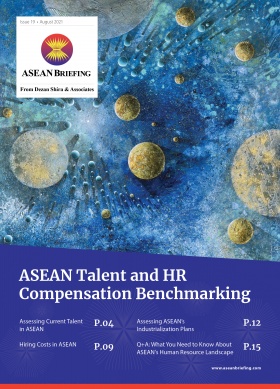Proposed Amendments to Thailand’s Public Limited Companies Act
In May 2021, Thailand’s Cabinet approved the draft amendments to the country’s Public Limited Companies Act in a bid to modernize the corporate process by allowing meetings between shareholders and directors to be held online, enabling the flexibility to send information between directors and shareholders electronically, and enabling shareholders to appoint a proxy electronically.
The Act has been previously amended in 1972, 1978, 1992, and 2008, with each amendment adapting the Act to contemporary business needs.The proposed amendments aim to improve the efficiency of and bring consistency to Thailand’s corporate system and procedures that were impacted by the pandemic, as borders were closed and logistics disrupted, leading to the loss in competitiveness for local businesses.
What are the proposed key amendments to the Public Limited Companies Act?
There are several important amendments to the newly proposed Public Limited Companies Act.
Advertisement of company matters
Under the proposed amendments, any announcement of the public company’s matters can be done through electronic means, whereas currently, the Public Limited Company Act demands that any notices or statements made by public limited companies must be done through Thai-language/national daily newspapers distributed in the area of the company’s headquarter.
Advertising the board of directors and/or shareholder’s meeting
Meetings taking place between the company’s board of directors (BOD) or shareholders may be held via electronic or digital means in conformity with the relevant laws and regulations under the proposed amendments. The headquarter of the company shall be deemed the venue for such meetings.
Currently, meetings taking place between the company’s board of directors or shareholders shall be held in the region of the public company’s general headquarter area unless the articles of association of the company say otherwise.
Authority to summon the board of director meeting
There are two methods for calling a BOD meeting. The first method is for the chairman to call for the meeting since they will have the summoning rights. The second method is to allow the meeting to be initiated by at least two directors, who have requested upon the chairman call a board of directors meeting. If the chairman refuses to or is unable to call the meeting within a stipulated 14-day period, a deadlock can occur.
Delivery of letters and documents by the public company or board of directors
The proposed amendments provide that the company or BOD can send letters or documents to directors, shareholders, or creditors electronically. Those persons, however, must have declared their intentions to receive such documents and letters via electronic means.
Currently, all letters and documents must be mailed via a registered post to a chosen address provided by the recipient to the company. In the absence of a working address, the public company will mail the notice or document to the recipient’s home address.
Proxy appointment
Under the draft Act, a shareholder can appoint a proxy through electronic means provided it is safe and credible. Currently, the appointment of a proxy must be made in writing and in hard copy.
The characteristics of public limited companies in Thailand
Thai public limited companies are able to offer shares, debentures, and warrants to the Thai public as well as apply to have their securities listed on the stock exchange.
A Thai public limited company requires at least 15 shareholders, and each shareholder is liable for a limited amount, not exceeding the share capital. There also needs to be at least five directors with at least half of them being Thai nationals.
Further Reading
- Thailand Issues New Incentive Package for Electric Vehicle Industry
- Thailand’s Laem Chabang Deep Seaport to Begin Phase 3 Expansion
- Thailand Issues New Incentives to Attract Foreign Investors, Professionals, and Retirees
About Us
ASEAN Briefing is produced by Dezan Shira & Associates. The firm assists foreign investors throughout Asia and maintains offices throughout ASEAN, including in Singapore, Hanoi, Ho Chi Minh City, and Da Nang in Vietnam, Munich, and Esen in Germany, Boston, and Salt Lake City in the United States, Milan, Conegliano, and Udine in Italy, in addition to Jakarta, and Batam in Indonesia. We also have partner firms in Malaysia, Bangladesh, the Philippines, and Thailand as well as our practices in China and India. Please contact us at asia@dezshira.com or visit our website at www.dezshira.com.
- Previous Article The Philippines Amends its Foreign Investment Act
- Next Article Increase in Social Insurance Rates for Foreign Employees in Vietnam







